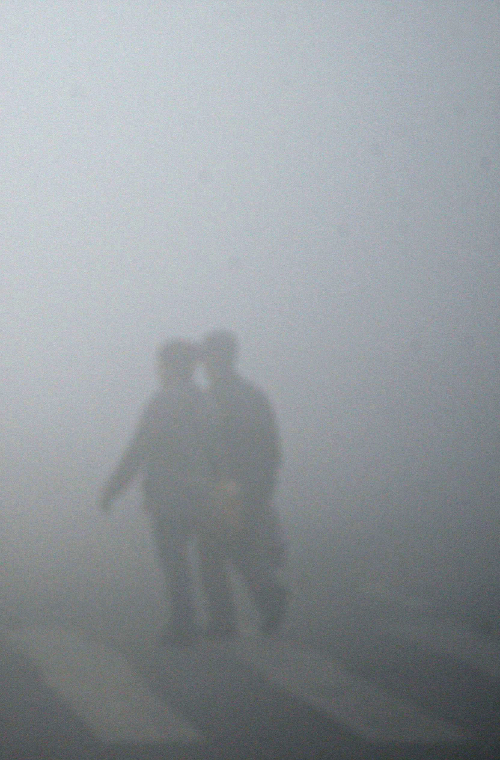Chinese response won't stop strangling cities
 Beijing has issued its first-ever red alert for pollution, with a new blanket of choking smog about to descend on the city.
Beijing has issued its first-ever red alert for pollution, with a new blanket of choking smog about to descend on the city.
Half of Beijing's private cars were ordered off the road on Tuesday, as well as 30 per cent of government vehicles.
The red alert is issued when severe smog is expected to last more than 72 hours – it is the highest of Beijing's four-tiered warning system.
It means outdoor construction sites will alsocease operations, but industrial plants only have to “implement measures to limit or stop production”.
Beijing's Environmental Protection Bureau also says fireworks and barbecues are banned.
“People should to the best of their ability reduce outdoor activities,” an official government Twitter account said.
“If you are engaging in outdoor activities you should wear a mask or take other protective measures.”
There was a non-mandatory call for kindergartens, primary and middle schools to close too.
The red alert comes just days after a thick grey haze shrouded China’s capital with concentrations of PM2.5 - harmful microscopic particles that can penetrate deep into the lungs – up to 634 micrograms per cubic metre.
The reading was well above the maximum recommended by the World Health Organisation - just 25 micrograms per cubic metre.
Chinese social media users were incredulous at the government's protection measures.
“If today is a red alert, then what was it I was seeing last week?” asked one user.
“I'm already indifferent, it's all a gas chamber anyway,” another said.
A majority of China's greenhouse gas emissions (and smog) come from the burning of coal for electricity and heat, so there are spikes during peak demand in winter.
Pollution causes hundreds of thousands of early deaths every year.
Beijing says emissions will peak “around 2030”, but has said nothing about what level that will be, suggesting the climb will continue for several years.
It consumes over 4 billion tonnes of coal each year, but has pledged to reduce coal consumption by 100 million tonnes by 2020.
PM2.5 levels were at 206 micrograms per cubic metre this week, according to the US embassy.







 Print
Print